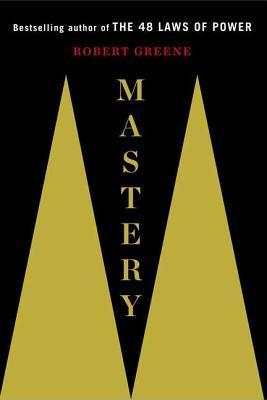More on this book
Community
Kindle Notes & Highlights
We developed it to help make sense of our world and to gain some control over it.
The problem we are facing here is that high-level intuition, the ultimate sign of mastery, involves a process that is qualitatively different from rationality, but is even more accurate and perceptive.
Like Proust, you must also maintain a sense of destiny, and feel continuously connected to it.
No moment is wasted if you pay attention and learn the lessons contained in every experience.
Never losing your connection to your Life’s Task, you will unconsciously hit upon the right choices in your life. Over time, mastery will come to you.
Understand: this intuitive form of intelligence was developed to help us process complex layers of information and gain a sense of the whole. And in the world today, the need to attain such a level of thinking is more critical than ever before.
On the other hand, there is the opposing tendency of the brain to want to make connections between everything. This generally occurs among individuals who pursue knowledge far enough that these associations come to life.
Think of it this way: the ultimate distinction you make is between yourself and the world.
Your experience of something that occurs in the world physically alters your brain. The boundaries between you and the world are much more fluid than you might imagine.
The intuitive mind is a sacred gift and the rational mind is a faithful servant. We have created a society that honors the servant and has forgotten the gift.
Mastery is not a function of genius or talent. It is a function of time and intense focus applied to a particular field of knowledge.
Whatever field of activity we are involved in, there is generally an accepted path to the top. It is a path that others have followed, and because we are conformist creatures, most of us opt for this conventional route. But Masters have a strong inner guiding system and a high level of self-awareness. What has suited others in the past does not suit them, and they know that trying to fit into a conventional mold would only lead to a dampening of spirit, the reality they seek eluding them.
And so inevitably, these Masters, as they progress on their career paths, make a choice at a key moment in their lives: they decide to forge their own route, one that others will see as unconventional, but that suits their own spirit and rhythms and leads them closer to discovering the hidden truths of their objects of study.
even when out for a walk with friends, he would continue to ponder his ideas—he had the unusual ability to listen on one track and think on another.
There are many paths to mastery, and if you are persistent you will certainly find one that suits you. But a key component in the process is determining your mental and psychological strengths and working with them. To rise to the level of mastery requires many hours of dedicated focus and practice.
You cannot get there if your work brings you no joy and you are constantly struggling to overcome your own weaknesses.
You must look deep within and come to an understanding of these particular strengths and weaknesses you possess, being as realistic as possible. Knowing your strengths, you can lean on them with utmost intensity. Once you start in this direction, you will gain momentum. You will not be burdened by conventions, and you will not be slowed down by having to deal with skills that go against your ...
This highlight has been truncated due to consecutive passage length restrictions.
Understand: achieving mastery in life often depends on those first steps that we take. It is not simply a question of knowing deeply our Life’s Task, but also of having a feel for our own ways of thinking and for perspectives that are unique to us.
In our culture we tend to denigrate practice. We want to imagine that great feats occur naturally—that they are a sign of someone’s genius or superior talent.
Getting to a high level of achievement through practice seems so banal, so uninspiring.
The ability to master complicated skills by building connections in the brain is the product of millions of years of evolution, and the source of all of our material and cultural powers.
He simply drew what he saw, and he began to notice that in trying to capture these things on paper, he had to think deeply. He had to focus on the details that the eye would often pass over.
Through drawing things in the world around him, he came to understand them.
Leonardo loved learning in this way, and soon it became apparent to Verrocchio that his young apprentice had developed an exceptional eye for detail.
They are in a hurry to create effects and make a splash; they think in large brush strokes. Their work inevitably reveals their lack of attention to detail—it doesn’t connect deeply with the public, and it feels flimsy.
In any competitive environment in which there are winners or losers, the person who has the wider, more global perspective will inevitably prevail. The reason is simple: such a person will be able to think beyond the moment and control the overall dynamic through careful strategizing.
In dealing with any problem, you must train yourself to look at how it inevitably connects to a larger picture.
If your work is not having the desired effect, you must look at it from all angles until you find the source of the problem.
The mind was designed to connect things, like a loom that knits together all of the threads of a fabric.
Mastery is not a question of genetics or luck, but of following your natural inclinations and the deep desire that stirs you from within.
Everyone has such inclinations.


